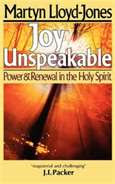It’s The Real Thing
(an expository study of the book of Hebrews)
1. For the law, having a shadow of the good things to come, and not the very image of the things, can never with these same sacrifices, which they offer continually year by year, make those who approach perfect.
2. For then would they not have ceased to be offered? For the worshipers, once purified, would have had no more consciousness of sins.
3. But in those sacrifices there is a reminder of sins every year.
4. For it is not possible that the blood of bulls and goats could take away sins.
5. Therefore, when He came into the world, He said: “Sacrifice and offering You did not desire, but a Body You have prepared for Me.
6. In burnt offerings and sacrifices for sin You had no pleasure.
7. Then I said, ‘Behold I have come – in the volume of the book it is written of Me – to do Your will, O God.’”
8. Previously saying, “Sacrifice and offering, burnt offerings, and offerings for sin You did not desire, nor had pleasure in them” (which are offered according to the law),
9. then He said, “Behold, I have come to do your will, O God.” He takes away the first that He may establish the second.
10. By that will we have been sanctified through the offering of the body of Jesus Christ once for all.
The eternal will of God
New Testament teaching is very clear concerning God’s intentions in giving the ceremonial law and to go beyond God’s intentions is folly. God gave the law for a shadow to foresee an image, which is to come. The law has no abiding substance. It points to a reality to come, which will do an effective and eternal work for those who approach (1).
When Jesus offered the Samaritan woman living water, so that she would never again thirst, she expressed her weariness in taking the daily walk to the well. It was, perhaps, ¼ mile, after which she would return with the full jar: “Sir, give me this water, that I may not… come here to draw.” There is drudgery in work that must be repeated continually, but God does a work that is perfect and doesn’t ever need to be repeated. The people came and the priests offered sacrifices continually, while the High Priest entered the Holy of Holies every year. They never found relief for their wounded conscience. The work was unending, until Jesus came (2).
Monday, January 18, 2021 | 0 Comments
Intense Desire
I promised last September that there would be two articles accompanying the first, titled "How Deep the Love of God". I had combined these three messages in a series called "Food for Sheep." After a few months delay, here is the second article.
(re-posted from July 12, 2015)
In the article entitled, How Deep the Father’s Love for Us, I tried to show the depth of His love basically through the apostle John’s statement, “Jesus knowing that His Hour had come that He would depart out of this world to the Father, having loved His own who were in the world, He loved them to the end” (John 13:1). We noticed that the Greek phrase “to the end” implied something more than an end to a time element, in which he expressed His love. In fact, it described the unending extent of His love, which had no limits.
John’s comment is given along with his account of the last supper, particularly the washing of the disciples’ feet, which took place, for whatever reason, on Thursday night before Passover. Jesus’ crucifixion is less than 24 hours away and He is crucified as the lambs are being slain for the Passover meal. At the completion of the article, I mentioned that we would take up two more verses of Scripture, Luke 22:15 and Revelation 3:20. So now we return to that evening, just as the Passover supper is to begin, when Jesus states:
“I have earnestly desired to eat this Passover with you before I suffer; for I say to you, I shall never again eat it until it is fulfilled in the kingdom of God.” Luke 22:15
Friday, January 15, 2021 | 0 Comments






 Recommended Books
Recommended Books



